Jones-Skiena Public Opinion of Artificial Intelligence Dashboard
2021-01-11 Update
 -- Dr. Jason Jeffrey Jones -- @jasonjones_jjj
-- Dr. Jason Jeffrey Jones -- @jasonjones_jjj
 -- Dr. Steven Sol Skiena -- @stevenskiena
-- Dr. Steven Sol Skiena -- @stevenskiena
Support for the Development of Artificial Intelligence
We deliver the following item every week to a random, representative sample of 100 Americans:
How much do you oppose or support the development of Artificial Intelligence?
The mean response per week and a linear trend are presented below.
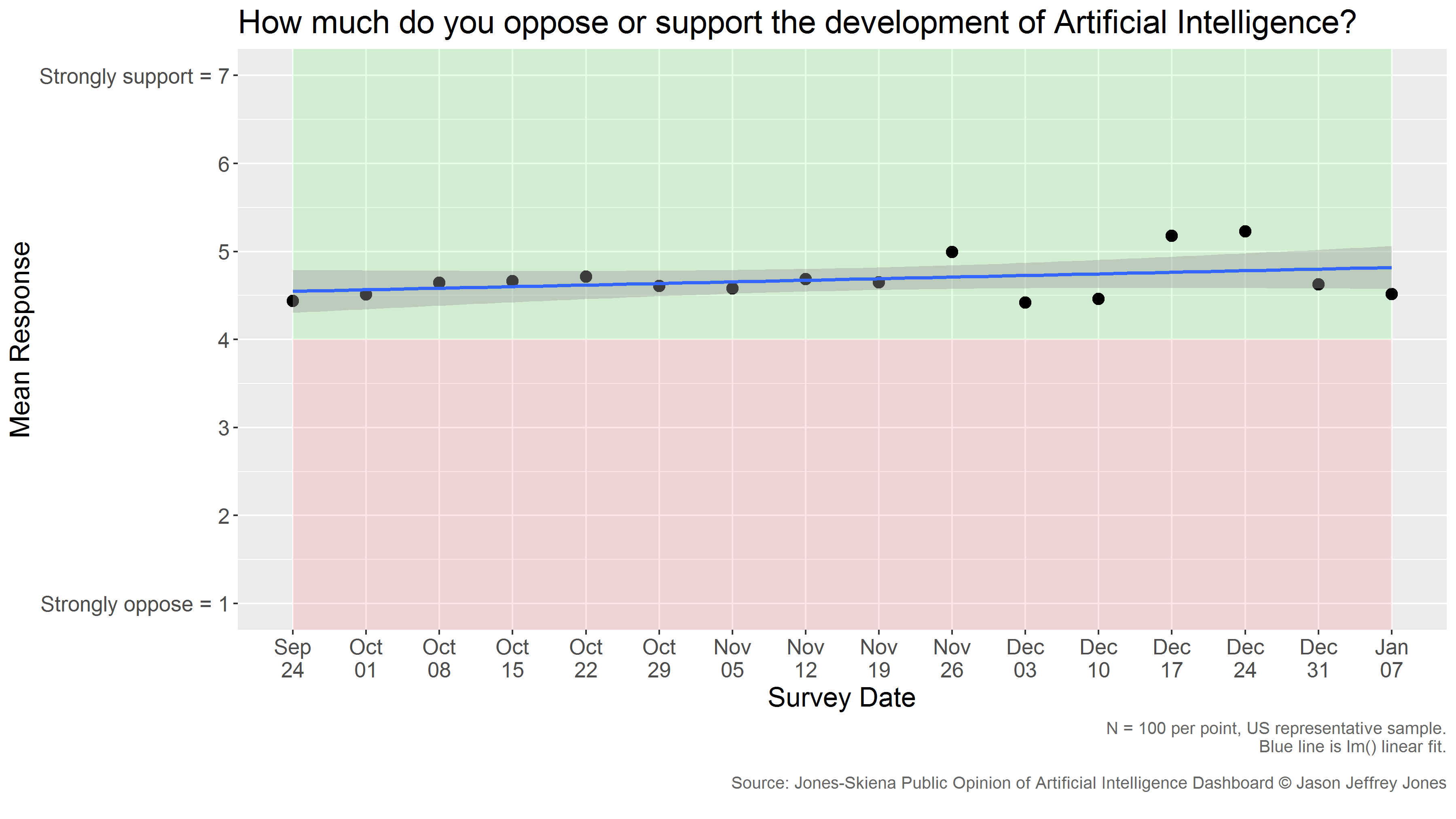
Interpretation
On average, the American public supports the development of Artificial Intelligence. In the data from January 7, 2021, the estimated mean response is 4.52, with a 95% confidence interval of 4.19-4.84. On our 7-point scale (labeled "Strongly oppose" at one end and "Strongly support" at the other) a value of 4 indicates indifference, any value below that opposition and any point above support.
In 16 weeks of running the same survey item, we have never observed a mean estimate below the midpoint of the scale. However, it is useful to observe the raw frequency of responses as a set of histograms. One can see that the modal (most frequent) response is typically 4, the midpoint of the scale, which we interpret as indifference. Americans are generally neutral on this question, but among those who are not, there are more on the Support end of the scale than the Oppose end. One can reasonably question whether the observed modal indifference is a stable equilibrium. We imagine that it is not, and public support will shift in one direction or another as more Americans gain more experience with and knowledge of artificial intelligence.
Currently, the data point toward increasing support. A linear fit of mean estimates over weeks passed is statistically significant: p = 0.08.
One wonders what short- and long-term effects the 2021 storming of the United States Capitol (which occurred Jan 6) will have on our data series. We make the prediction that items like ours, which measure "support," "trust" and "confidence" will see the response distribution shift to the left (i.e. lower values). So far, our Jan 7 support-for-AI item is our only observation after the event. The mean response is lower than the previous observation and lower than the median from this series, but not the lowest ever and not dramatically reduced from the expected value.
Trust in Artificial Intelligence
NEW DATA! Updated 2020-01-11.
We deliver items of the following form every month to a random, representative sample of 100 Americans:
How much trust do you have in <prompt-item> to do the right thing?
The mean response per week and a linear trend are presented below.
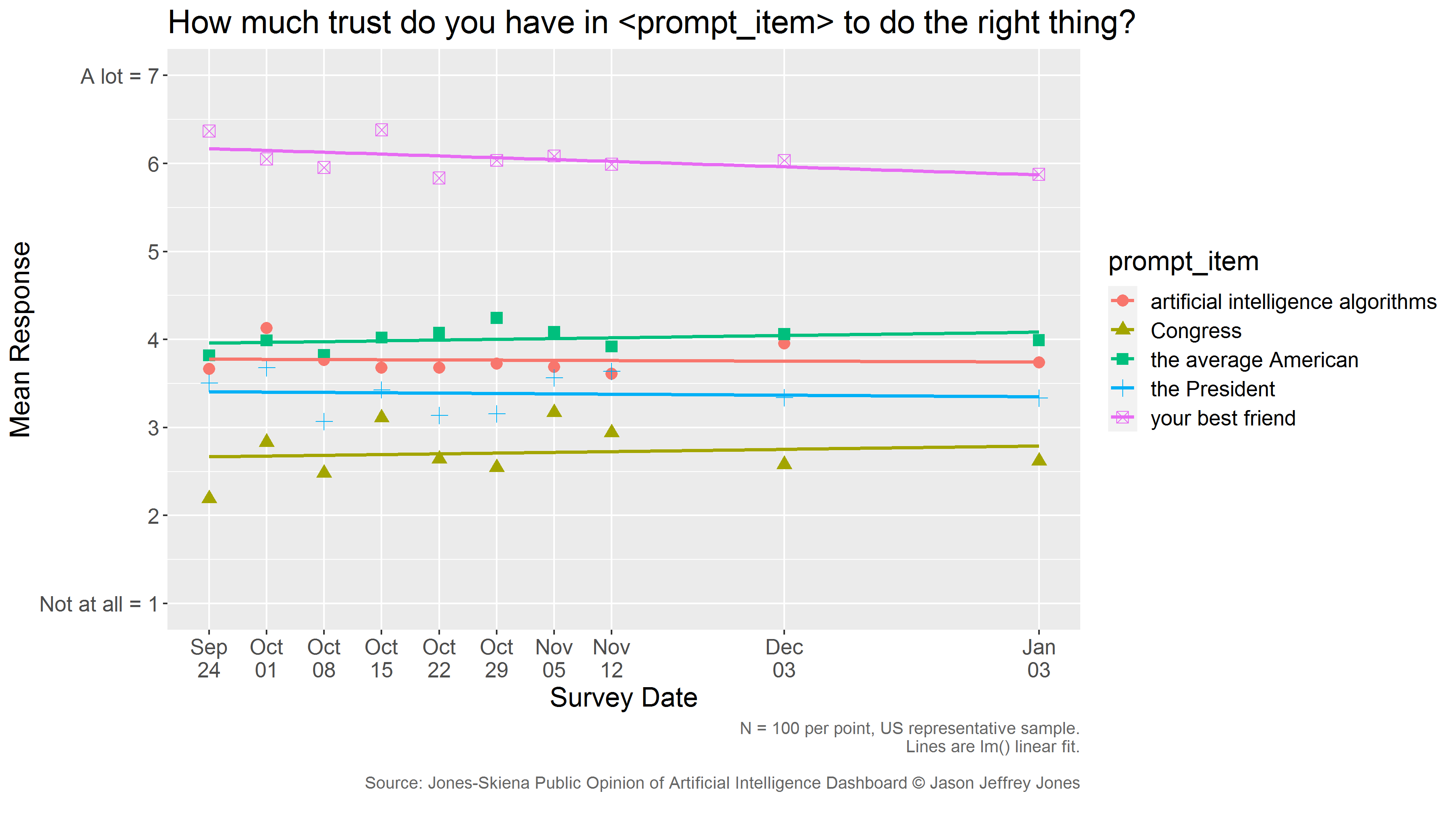
Interpretation
On average, the American public trusts "artificial intelligence algorithms" to do the right thing just a little less than they trust the average American. Americans trust artificial intelligence algorithms more than Congress or the President, but not as much as their best friend. Pooling the data and weighting to match demographics, we may estimate the following 95% confidence intervals.
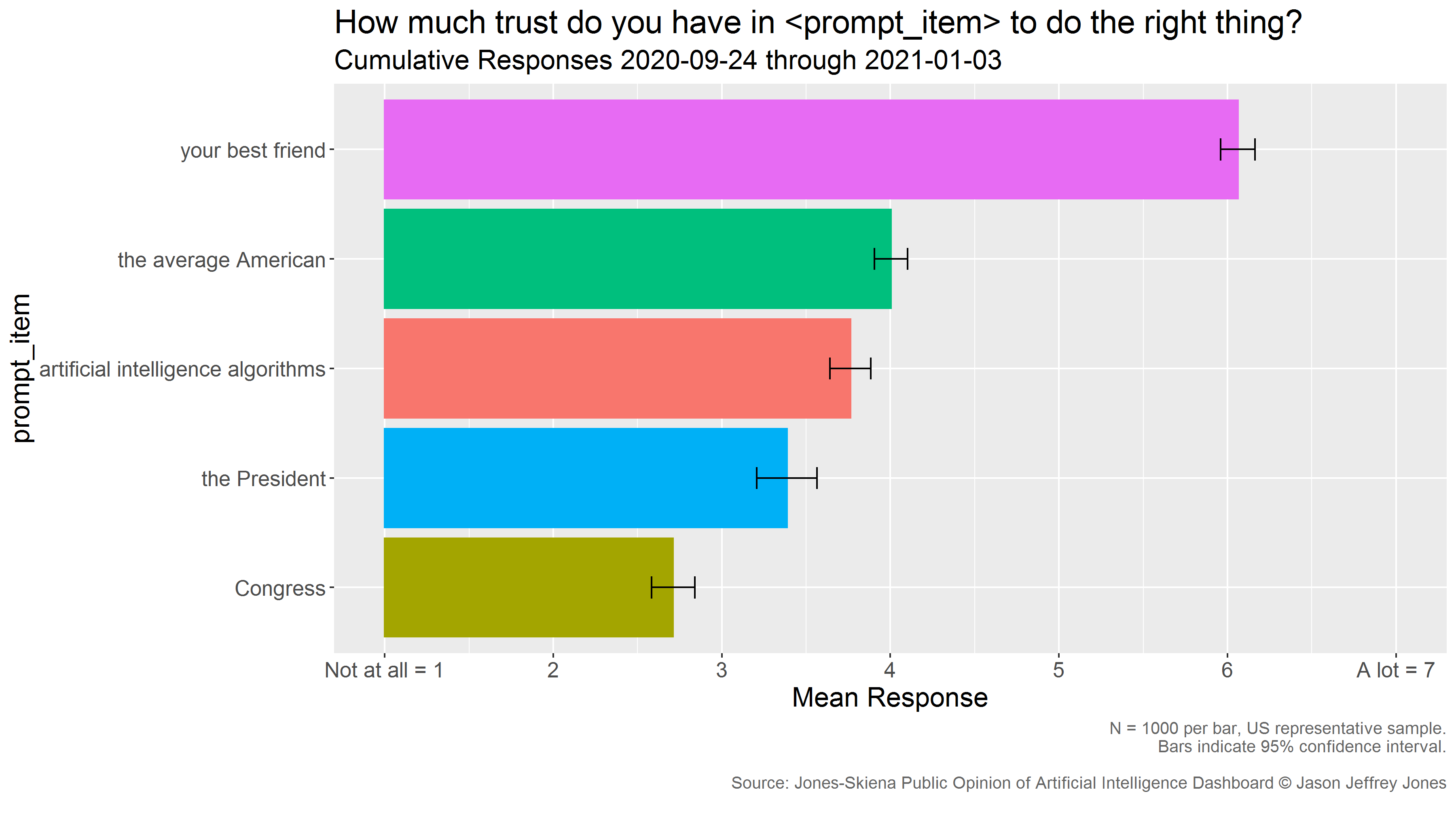
If you were thinking that these trust survey items would have interesting distributions, you'd be right.
During the period of observation, the magnitude and ordering of trust in these targets has remained stable. Trendlines are shown to aid the eye, but no trendline has a slope significantly different from zero.
This round of "trust" items was delivered Jan 3 - Jan 5, 2021. Thus, none of the data in this section was collected during or after the 2021 storming of the United States Capitol (which occurred Jan 6).
Confidence in Groups using Artificial Intelligence
Updated 2020-01-04.
We deliver items of the following form every month to a random, representative sample of 100 Americans:
How much confidence would you say you have in <prompt-items> that use Artificial Intelligence systems?
The mean response per week and a linear trend are presented below.
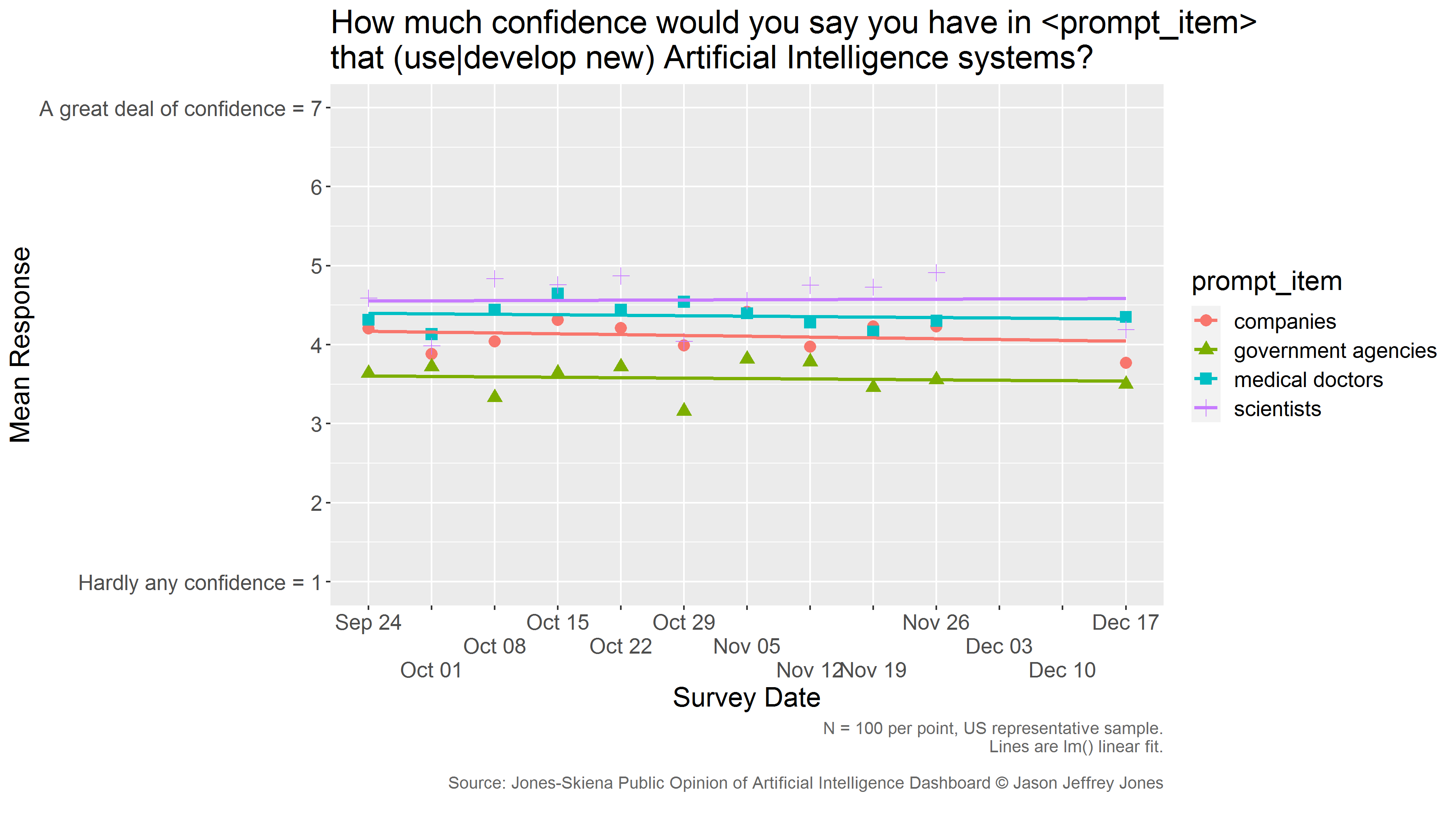
Interpretation
On average, the American public has middling confidence in groups that use Artificial Intelligence. There is plenty of room on the scale for respondents to indicate they have less confidence or more, but the responses point to sustained intermediate levels of confidence, or perhaps indifference.
One prompt_item (scientists that develop new Artificial Intelligence systems) displayed a positive trend reaching toward 95% statistical significance in the previous round of results. In the most recent round, confidence in scientists regresses toward the mean. The upcoming months will indicate whether a positive trend re-emerges.
The figure below contrasts the means for each prompt item, collapsing across all dates. One can confidently conclude that Americans place highest confidence in scientists to develop new artificial intelligence systems, followed by medical doctors, companies and government agencies to use these systems.
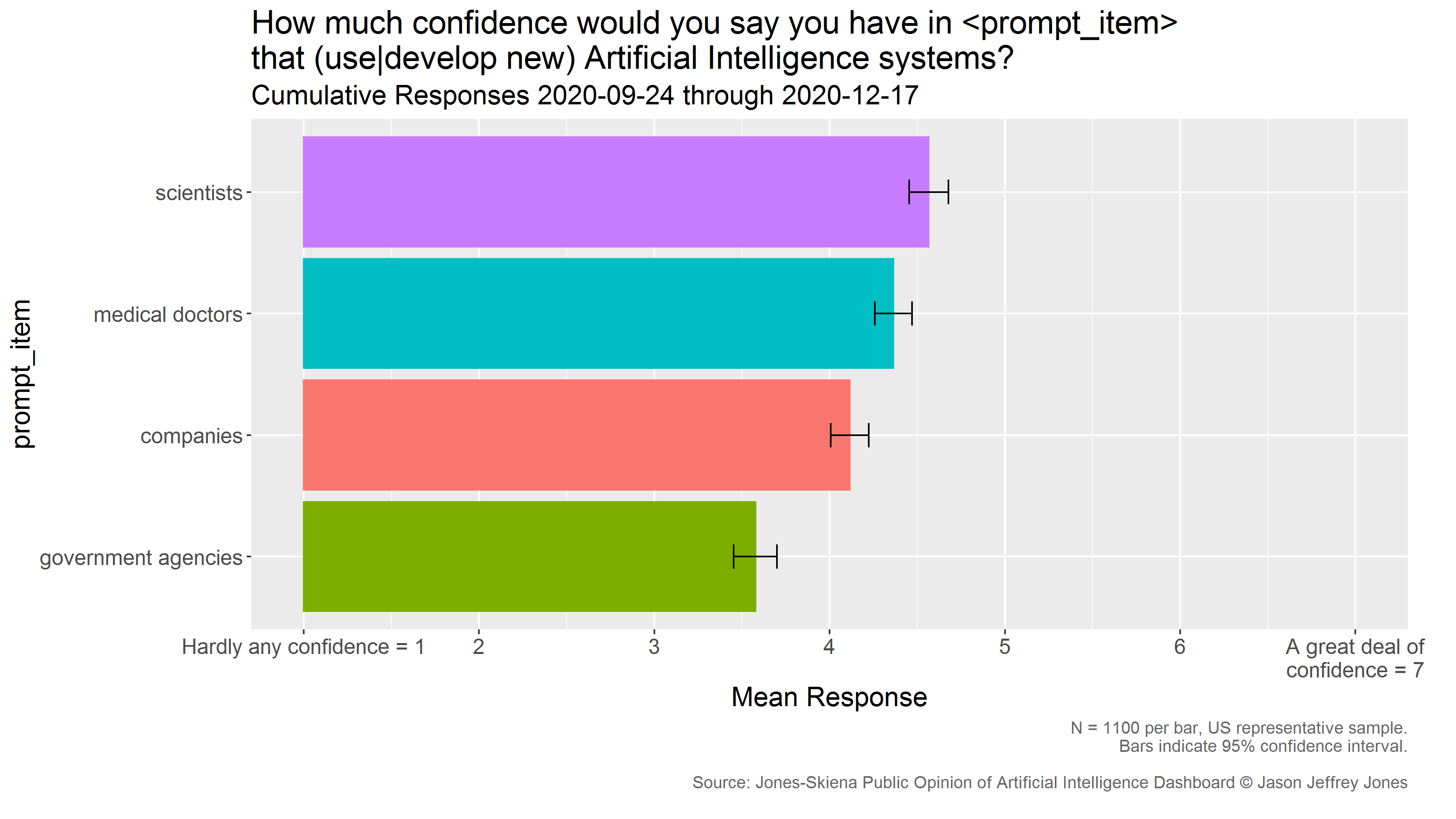
Familiarity with Artificial Intelligence
Updated 2020-01-04.
We deliver items of the following form every month to a random, representative sample of 100 Americans:
How familiar are you with the following computer-related item? <prompt-item>
The mean response per week and a linear trend are presented below.
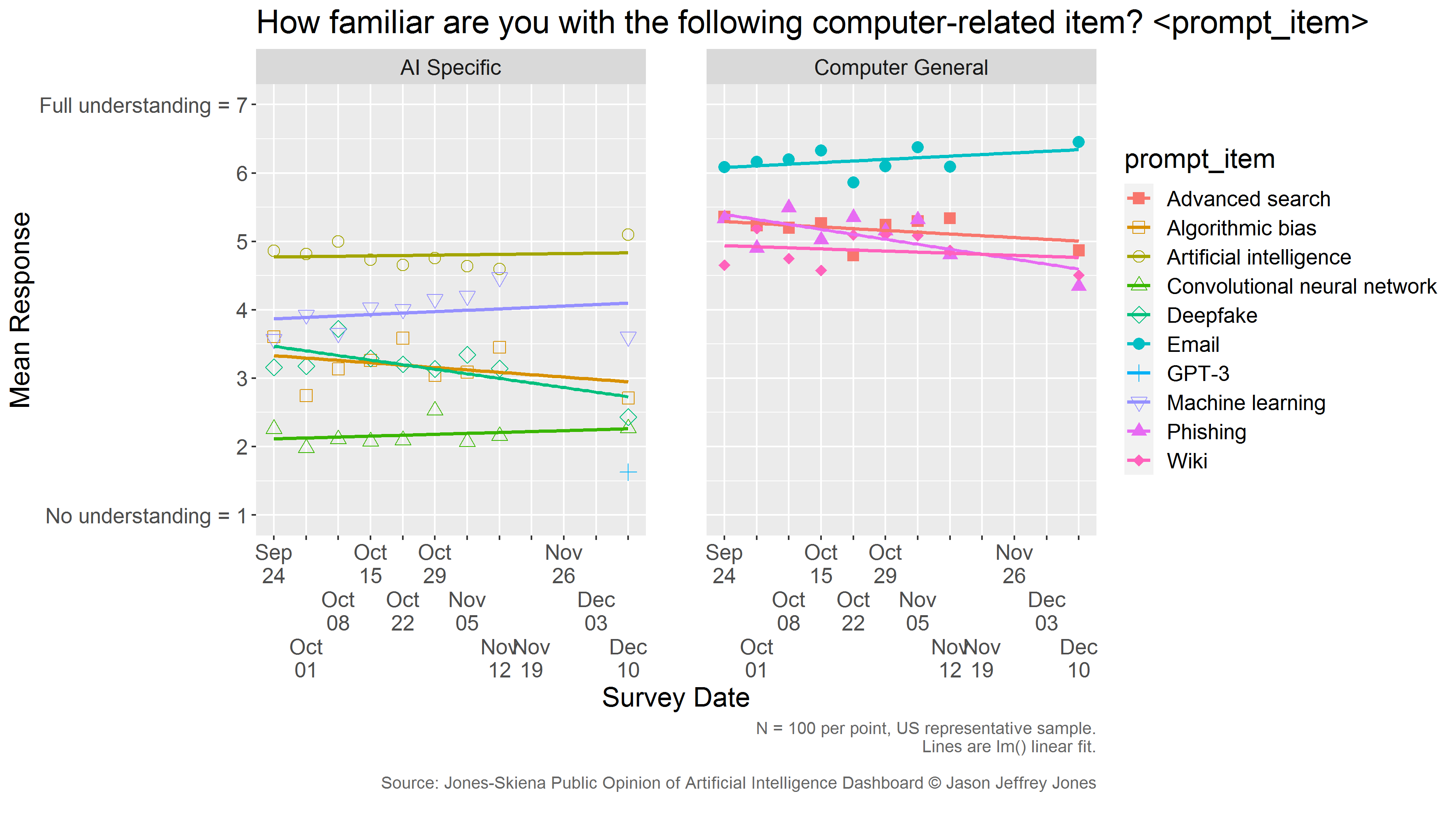
Interpretation
On average, the American public self-reports less understanding of Artificial Intellgience terms as compared to other computer terms. We hesitate to interpret temporal trends until we can collect a few more months of data. (For example, the upward trend for 'Machine Learning' that one saw in the weekly data did not continue through this first round of monthly data.) For more straightforward results consider the following visualization which pools the data for all survey rounds to estimate 95% confidence intervals.
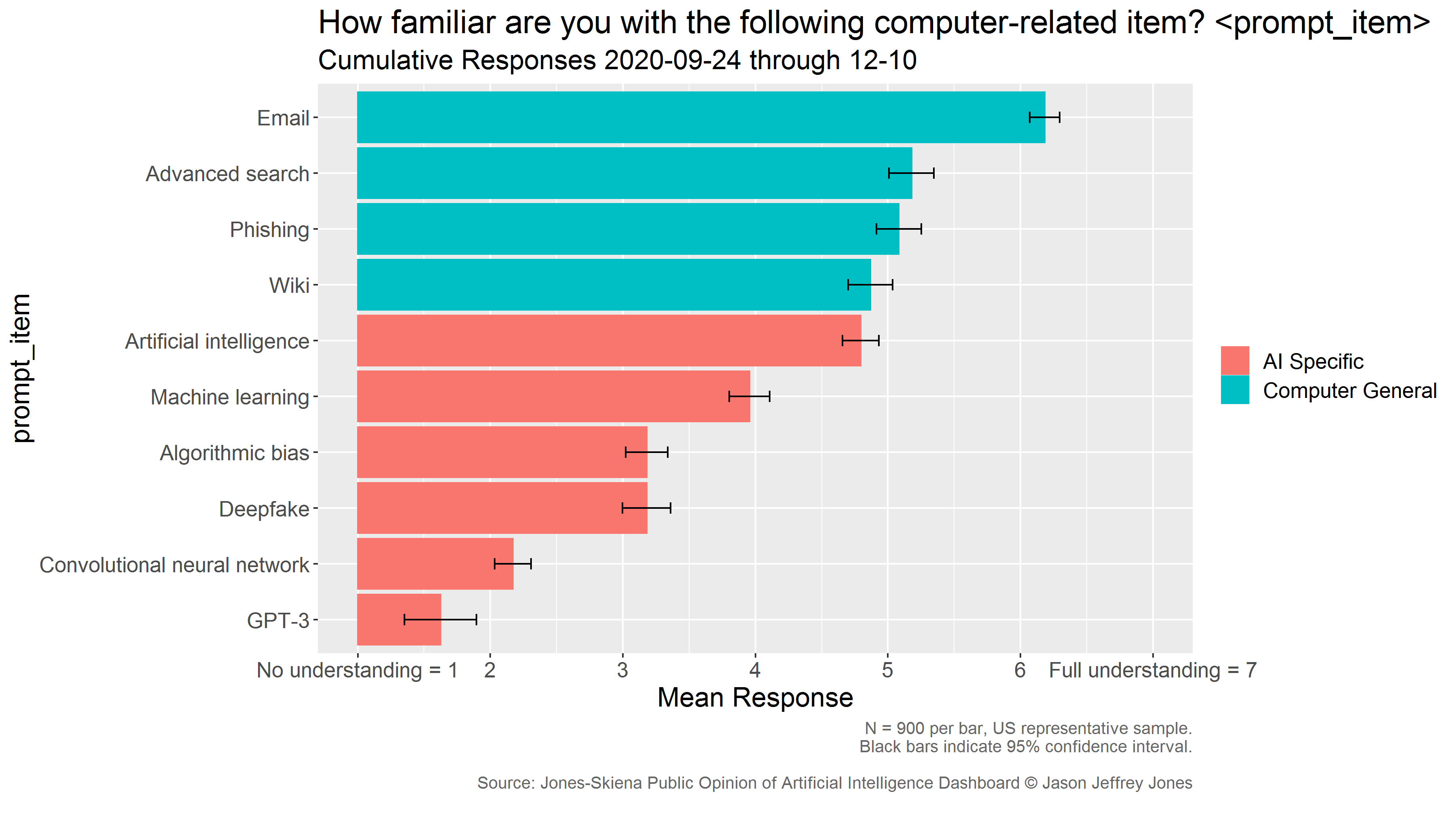
Americans report very low understanding of 'GPT-3' - an item we added in the most recent round. Despite the volume and intensity of recent discussion surrounding GPT-3 within AI circles, the broader public is not comfortable expressing any understanding of this item.
These surveys are conducted by Dr. Jason Jeffrey Jones and Dr. Steven Sol Skiena. All raw data is available at this Open Science Foundation repository. Please include proper attribution any time you make use of our work. Read more about the Jones-Skiena Public Opinion of AI Dashboard.